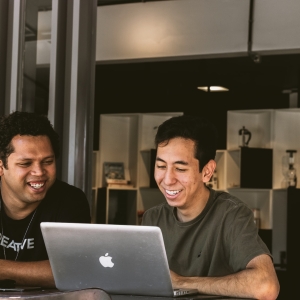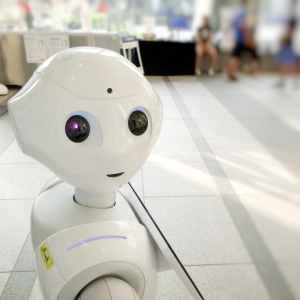The field of human resources (HR) is constantly evolving, and the integration of artificial intelligence (AI) technologies is revolutionizing many aspects of HR operations. Here are some of the top AI trends in the human resource industry:
- Automated Recruitment: AI-powered tools and algorithms are being used to automate and streamline the recruitment process. These tools can analyze resumes, screen candidates, conduct initial interviews, and even predict candidate suitability based on historical data. AI-powered chatbots are also being used for initial candidate interactions and answering frequently asked questions.
- Talent Analytics: AI is being used to gather and analyze large volumes of HR data, including employee performance, engagement, and turnover rates. This enables HR professionals to gain valuable insights into talent management and make data-driven decisions regarding recruitment, retention, and development strategies.
- Employee Engagement and Experience: AI is being leveraged to enhance employee engagement and experience. Chatbots and virtual assistants can provide personalized assistance and support to employees, answer their queries, and provide on-demand learning and development resources. AI-powered sentiment analysis tools can also gauge employee sentiment and identify potential issues to proactively address them.
- Predictive Analytics for Retention: AI algorithms can analyze various data points to identify patterns and predict which employees are at risk of leaving the organization. This enables HR departments to take proactive measures to improve retention, such as targeted interventions, personalized development plans, or even offering incentives.
- Performance Management: AI can facilitate more effective performance management by automating performance reviews, providing real-time feedback, and offering personalized coaching and development recommendations. AI tools can also help identify skill gaps and suggest relevant training programs to enhance employee performance.
- Bias Detection and Mitigation: AI can help identify and mitigate biases in HR processes, such as recruitment, compensation, and performance evaluation. By analyzing historical data, AI algorithms can flag potential biases and ensure fair and objective decision-making.
- Employee Well-being and Mental Health: AI-powered tools and chatbots can be utilized to monitor and support employee well-being and mental health. These tools can detect signs of stress, burnout, or other mental health issues, and provide resources, recommendations, or even connect employees with relevant support services.
- HR Process Automation: AI-enabled ATS can automate routine and administrative HR tasks such as payroll processing, leave management, and benefits administration. This allows HR professionals to focus on more strategic and value-added activities.
- Skills Development and Upskilling: AI can assess employee skills and competencies and recommend personalized learning paths to enhance their capabilities. AI-powered learning platforms can deliver targeted and adaptive training content to employees, ensuring that they acquire the skills required for their current and future roles.
- Ethical AI and Privacy: As AI is increasingly integrated into HR processes, ensuring ethical use of AI and safeguarding employee privacy are critical considerations. Organizations are focusing on developing responsible AI frameworks, transparent algorithms, and robust data protection measures to maintain trust and ensure compliance with regulations.
It's important to note that while AI brings significant advancements to the HR industry, it should complement human expertise and decision-making rather than replace it entirely.




